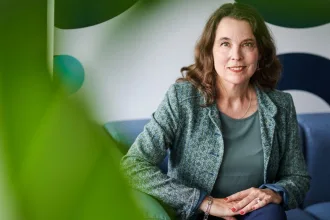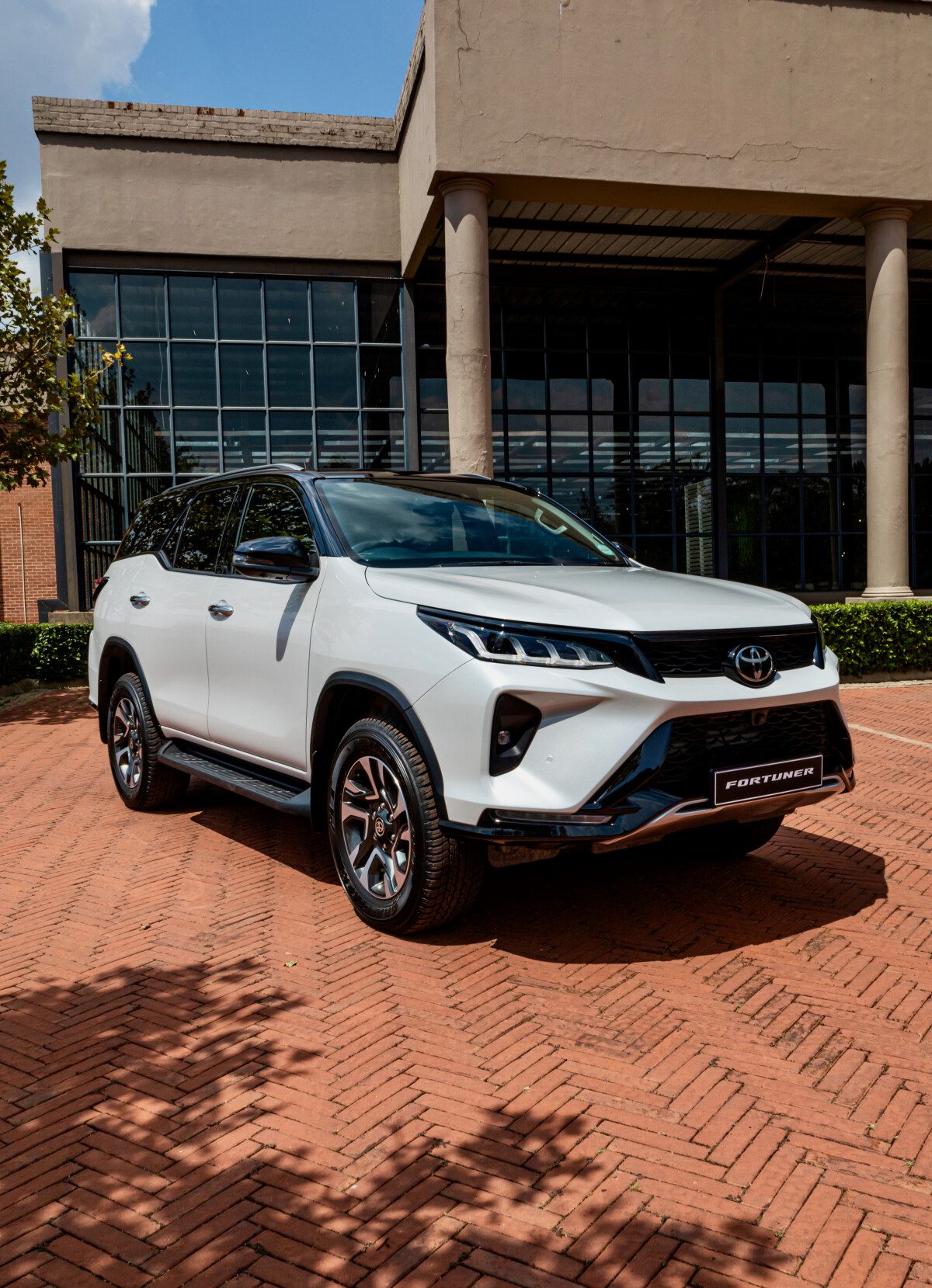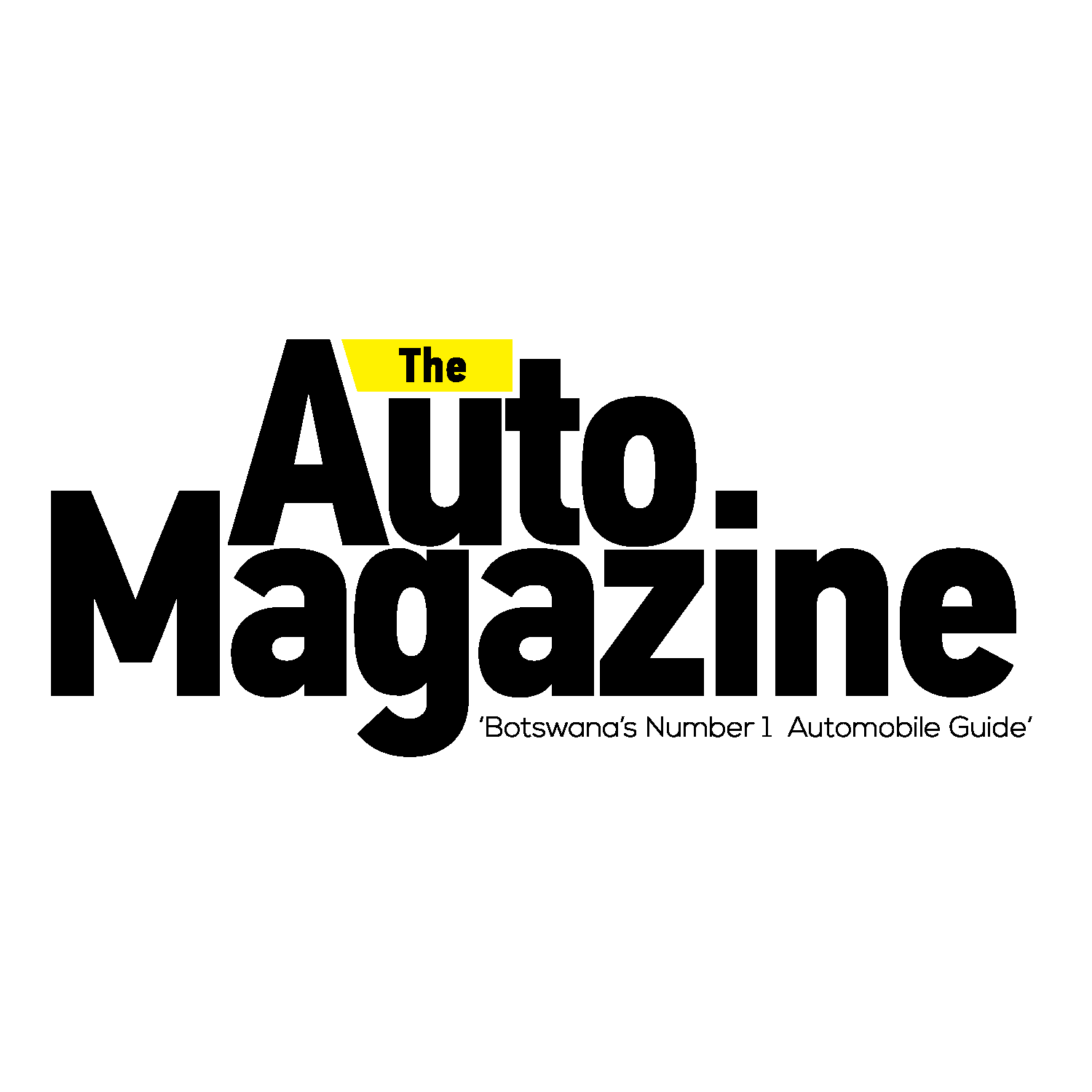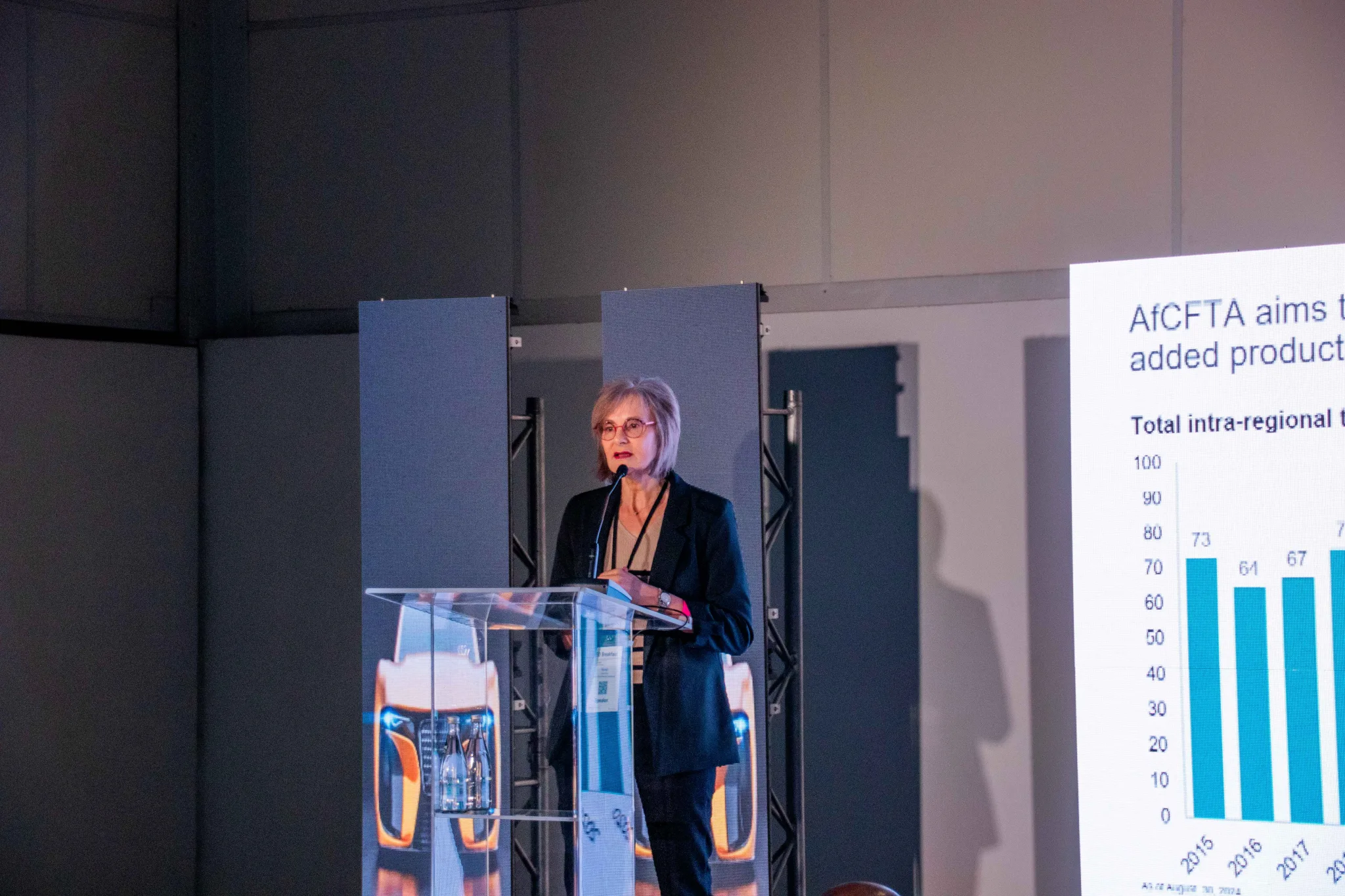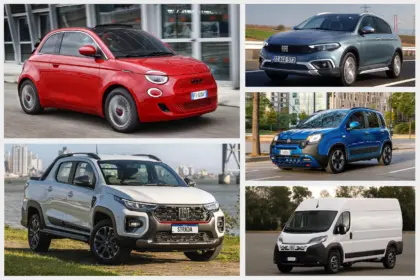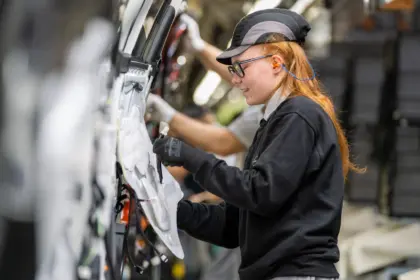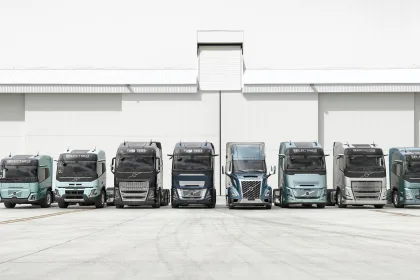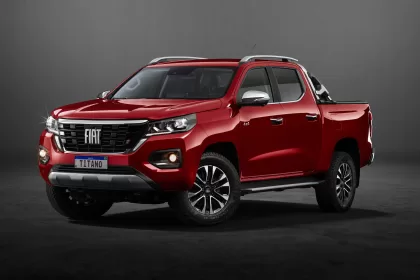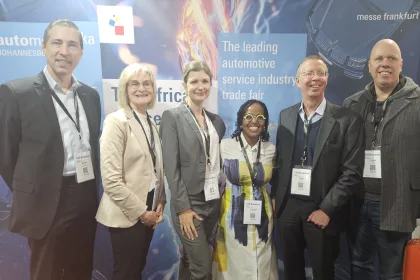The well-attended 3rd Quarter Automechanika Johannesburg CEO Breakfast on Friday 30 August 2024 at the Kyalami Grand Prix Circuit revealed the spectrum of explorable business opportunities for the automotive aftermarket and the commercial vehicle sector in Africa. The event no doubt stimulated entrepreneurial thinking among attending industry leaders who were presented with illuminating facts and figures to whet the appetites of positive thinkers.
Leading the way with his opening address was Deputy Head of Mission of the German Embassy in SA Enrico Brandt who attested to the strong German business presence in South Africa and particularly, the motor industry, at both OEM and aftermarket levels. He stated that the dynamism of the motor industry was necessary to master the effects of transformational challenges. He noted the necessity of close and continuing interface between the industry and government to ensure the recognition of its importance to ensure the sustainability of the motor industry.
Ronel Oberholzer, Head of Sub-Saharan Africa Economics at S&P Global Market Intelligence, supported by colleague Economist Lerato Ntuli delivered a riveting presentation on world trade patterns and homed in on Africa, where the recently-implemented African Continental Free Trade Area (AfCFTA, established by the 55 member African Union with 54 member states having signed the Agreement) is set to make a huge difference in opening free trade opportunities on the Continent. Although sub-Saharan Africa represents only 2% of world trade, the AfCFTA is the largest free trade area globally. Of the top five trade areas in Africa, South Africa was, in 2023, the largest trade area at 55% of all trade (up from 52% in 2015) followed by Egypt (12%), Mozambique (12%), Côte d’Ivoire (11%) and Nigeria (10%). Ronel indicated that there are significant impediments to trade expansion in many regions due to insufficient infrastructure and security issues which, if resolved, could see rapid and exponential trade growth in the AfCFTA.
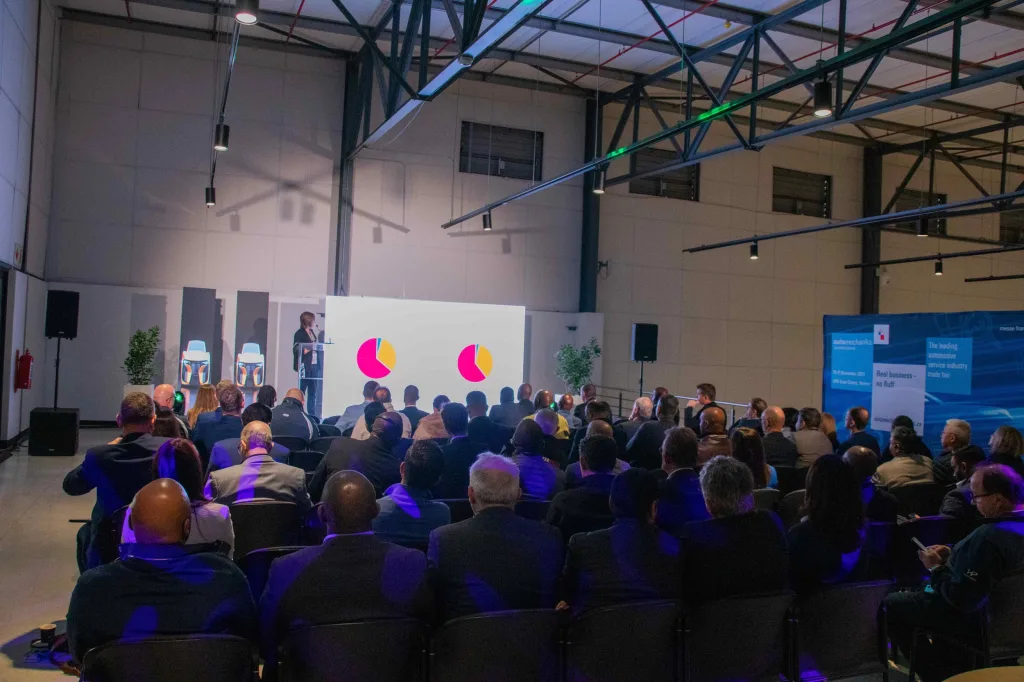
Of particular importance for the motor industry is the fact that overland trade in the AfCFTA constituted 61% of all trade in 2023, followed by seaborne (36%) and airborne (3%) trade. “The very nature of overland trade holds huge opportunity for commercial vehicle manufacturers and the automotive aftermarket to supply and serve the needs of the various regions within the AfCFTA and is an aspect which holds enormous potential benefit to the motor industry,” she said.
The subject of electric and hybrid mobility (EV) continues to garner more attention as its rapidly developing technology improves the prospects of viability and growth in market penetration. This was highlighted by Greg Cress, Principal Director: Automotive & eMobility at Accenture South Africa, who gave a most revealing insight into the growth of eMobility and focusing on the subjects of residual values in an e-mobility environment , factors influencing residual values, opportunities and challenges in an African context and considerations for fleet owners.
Important factors influencing residual values were pinpointed as battery life and performance, the evolution of technology, charging infrastructure, government policies (in terms of government incentives and support programmes) and market demand. Where vehicle mileage covered was an important consideration in residual value insofar as ICE vehicles with linear regression of wear were concerned, this was not the case with EV ‘s where the state of battery health was the most important determinant, with non-linear regression indicating that mileage was not the major consideration.
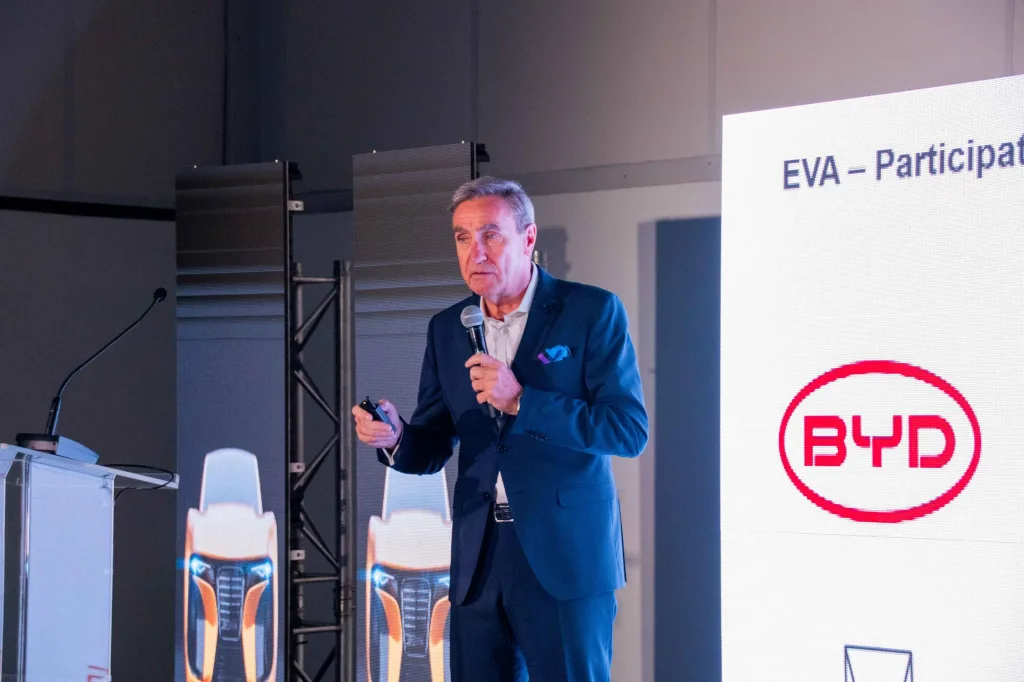
Greg further highlighted some high-level considerations for fleet owners considering a transition in their fleets from ICE vehicles to EV’s, being cost management and cash flow optimisation, vehicle replacement and lifecycle cost analysis, risk mitigation and financial exposure, lease vs. purchase negotiations, tax and accounting compliance, sustainability and environmental goals and operational efficiency.
Insofar as the potential for growth in the EV market was concerned, important impediments were the high initial cost of acquisition and lack of charging infrastructure in some areas. However, increasing urbanisation, a growing middle class, renewable energy potential and decarbonisation were significant positives indicating that the future of the development of the EV market was getting ever brighter. “There is no doubt that the future of the EV market in Africa will become more sustainable and viable as rapid technological development is expected to drive down costs. Furthermore, the mineral rich African Continent holds huge potential for focusing on beneficiation and the resultant economic benefits this will undoubtedly deliver in terms of economic growth, further enhancing cost-efficiency ratios”, he said.
The increasing importance of the EV sector was further alluded to by Stephan Kurzawski, Senior Vice-President: Consumer Goods & Sales at Messe Frankfurt, who announced that Automechanika Frankfurt 2024 would again feature a dedicated and expanded exhibition section to eMobility.
There is no doubt that there are huge business opportunities for alert and innovative entrepreneurs in the Southern and sub-Saharan African Regions and that the upcoming editions of Automechanika Johannesburg and Futuroad Expo present a premium no-fluff business and networking platform to identify and develop valuable business potential.


